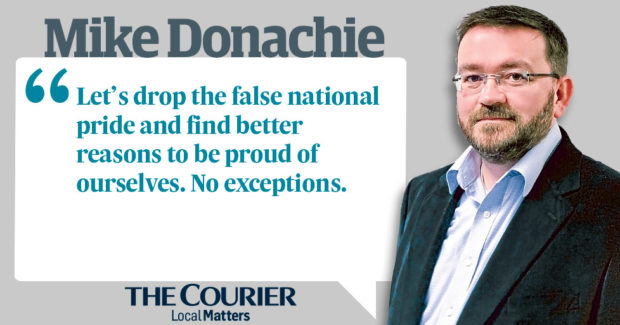I was sneering at the non-story about Rule Britannia when I realised it was a perfect example of something on my mind lately: exceptionalism.
Let’s recap: the BBC, due to COVID, suspended singing at this year’s Proms.
That means those who enjoy bellowing “Britannia, rule the waves” while waving their flag will be denied their annual ejaculations.
The tabloids parsed this as a political “ban” and eventually Boris Johnson introduced his jingoistic bumbling to the conversation, reconfirming modern British society’s similarity to a rejected Monty Python skit.
The song itself, and the feelings it triggers among those who love or loathe it, is revealing.
We’ve all heard the bit about not being slaves, but did you know this song suggests Britain was created by divine intervention?
It’s here: “When Britain first, at heaven’s command, arose from out the azure main.” Wait – is this in the Bible? (Spoiler: it’s not.)
Then angels sing: “The nations not so blest as thee must, in their turn, to tyrants fall.” To be clear, that’s actual angels telling us we’re special.
Then there’s some stuff about Britain’s right to rule. More fantasy.
Anyone who would sing Rule Britannia without irony is surely unhinged.
Sadly, however, there are those who do, which brings us to exceptionalism.
Some people think they’re special because of their birthplace.
It’s not limited to Britain. Last week, Donald Trump’s administration insisted that American exceptionalism be taught in U.S. schools, due to an ongoing fallacy that the United States represents freedom.
Exceptionalism exists across the world, usually due to the opportunistic presenting attractive ideas to the naïve. Scots aren’t immune.
I strongly believe Scottish culture is filled with positive values, but one look at the vicious online arguments about independence proves Scots are just as flawed as other humans. We have our own daft songs, too.
Getting to the point, I hope I can plant this thought in a few minds: no nation is exceptional.
All are made of people – deeply troubled people. We can, and must, do better.
Let’s drop the false national pride and find better reasons to be proud of ourselves. No exceptions.










